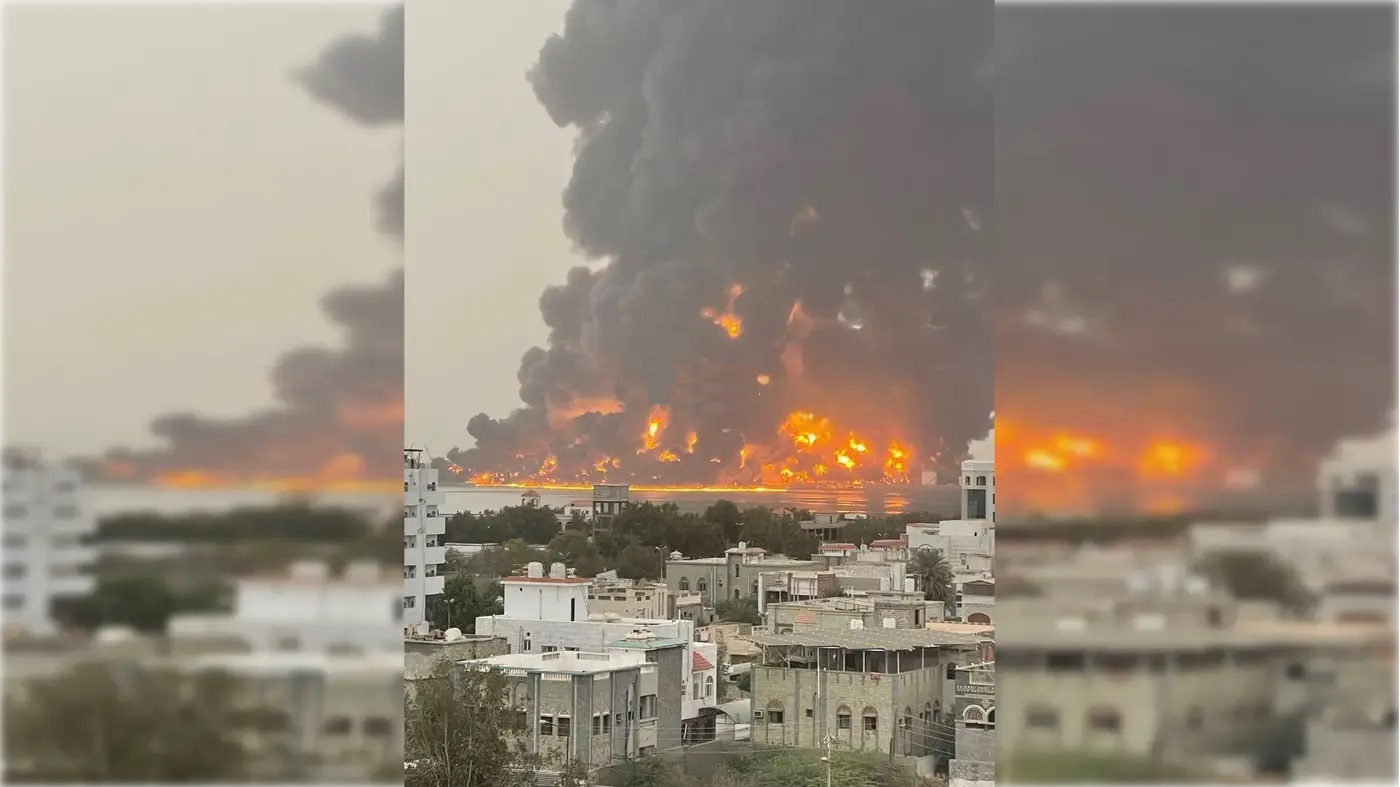Israeli Airstrikes Hit Yemen in Retaliation for Houthi Missile Attacks: A New Front in the Regional Conflict

On September 15, 2024, Israeli airstrikes targeted areas in Yemen’s port city of Hodeidah, marking a significant escalation in the ongoing tensions between Israel and Iran-backed Houthi militias. This attack came in response to multiple missile launches by the Houthis towards Israel in the preceding days, which included an attempt to hit Tel Aviv. Although the missiles caused minimal damage, Israel’s response was swift and decisive, focusing on strategic sites in Hodeidah, a city under Houthi control.1
The Israeli military stated that the strikes were a direct retaliation against the Iran-aligned Houthis for their missile attacks, underlining Israel’s policy of responding strongly to any threat against its territory. Interestingly, despite the severity of the response, Israel did not target any key Houthi leaders, a tactic that it has commonly used in its dealings with other militant groups such as Hezbollah, Hamas, Popular Mobilization Front, and the Palestinian Islamic Jihad. Instead, the strikes primarily hit infrastructure and non-military targets, such as a power plant, raising questions about the strategic intent behind the airstrikes.
Israel’s Focus on Deterrence, Not Leadership
Unlike its strategy against Hezbollah and Hamas, Israel’s airstrikes in Yemen did not aim to eliminate senior Houthi figures. This may suggest that Israel’s primary goal is not to dismantle the Houthi leadership but to send a clear message to Iran, the Houthis’ principal backer. By targeting critical infrastructure in Yemen, Israel seems to be signaling its intent to weaken Iran’s influence in the region through proxy forces without engaging in a full-scale military confrontation with the Houthis.
The lack of high-profile Houthi casualties contrasts with Israel’s actions in Lebanon and Gaza, where leaders of militant groups are often the prime targets. The decision to strike infrastructure rather than military command centers may be a way of avoiding further escalation while still demonstrating Israel’s military reach.
The Houthi Role in Yemen’s Destruction
The airstrikes in Yemen have renewed focus on the destructive role played by the Houthi militia in the region. The Houthis, labeled as a terrorist organization by several countries, have long been accused of destabilizing Yemen and drawing in external powers like Iran. Their missile attacks on Israel add a new dimension to their involvement in regional conflicts, dragging Yemen into a broader geopolitical struggle that includes not only Israel but also Saudi Arabia, the UAE, and other regional actors.
Houthi forces have been linked to numerous threats to regional security, including attacks on Saudi oil infrastructure and the disruption of vital shipping lanes in the Red Sea. Their alignment with Iran has also made them a key player in Tehran’s efforts to expand its influence across the Middle East. Israel’s recent airstrikes can be seen as part of a larger effort to push back against this Iranian expansion through its proxies.
Yemen as a Battleground in a Broader Conflict
While the direct confrontation between Israel and the Houthis is a relatively recent development, it fits within the wider context of the Israeli-Iranian conflict. For years, Iran has been using its proxy forces across the region to challenge Israel, from Hezbollah in Lebanon to Palestinian factions in Gaza. The involvement of the Houthis adds another layer to this multi-front war, which now stretches from the Levant to the Arabian Peninsula.
The airstrikes on Hodeidah also serve as a warning to Iran. By attacking the Houthis, Israel is sending a clear message that it is willing to confront Iran’s allies wherever they may be, whether in Syria, Lebanon, or Yemen. This is especially significant given Hodeidah’s strategic location on the Red Sea, a crucial shipping route for global trade and oil transportation. Disruptions in this area could have far-reaching consequences for the global economy, highlighting the broader risks of the Houthi presence in Yemen.
A Message to Iran
While the Houthis may have been the immediate target of Israel’s airstrikes, the real audience for this military action is likely Iran. The strikes are a direct response to the growing influence of Tehran in Yemen through the Houthi militia, which has become a key player in Iran’s broader regional strategy. By targeting Houthi-controlled areas, Israel is sending a clear signal that it will not tolerate Iranian expansionism, particularly when it threatens Israel’s security.
This airstrike also underscores the broader geopolitical risks of the conflict. With Iran supplying the Houthis with advanced weaponry, including ballistic missiles, the risk of further escalation remains high. The Israeli strikes could be interpreted as a warning to Tehran: if Iran continues to arm and support the Houthis, Israel will respond with military force not just against Iranian targets in Syria or Lebanon, but also in Yemen.
Houthi Terrorism and Regional Destabilization
The Houthis’ missile attacks on Israel and their broader role in Yemen’s civil war have contributed significantly to the destabilization of the region. Their actions threaten not only Yemen’s fragile internal stability but also the security of the broader Middle East. By targeting vital infrastructure and launching attacks against neighboring countries, the Houthis have turned Yemen into a flashpoint for international conflict.
In addition to their military activities, the Houthis have been accused of severe human rights abuses, including the use of child soldiers, the suppression of dissent, and the systematic destruction of Yemen’s economy and social fabric. Their alliance with Iran has only exacerbated these problems, as they have become a conduit for Iranian ambitions in the region.
Conclusion: Yemen Caught in the Crossfire
As the conflict between Israel and the Houthi militias intensifies, Yemen finds itself caught in the middle of a broader regional struggle. The Houthis’ alignment with Iran and their willingness to engage in missile attacks against Israel have brought further destruction to a country already devastated by years of civil war. Israel’s airstrikes in Yemen highlight the growing complexity of the conflict, as external powers continue to intervene in the region’s fragile political landscape.
Ultimately, the Israeli airstrikes are a reflection of the broader geopolitical dynamics at play in the Middle East. While Israel may not have directly targeted Houthi leaders, the strikes send a powerful message to both the Houthis and their Iranian backers. As long as the Houthis continue to align themselves with Iran and threaten regional stability, they will remain a target for Israeli military action.
The broader implications of these developments are clear: Yemen, already suffering from years of conflict, is now becoming another front in the wider regional war between Israel and Iran. The Houthis, through their actions, have drawn Israel into the conflict, bringing further devastation to Yemen and complicating efforts to achieve peace and stability in the region(





